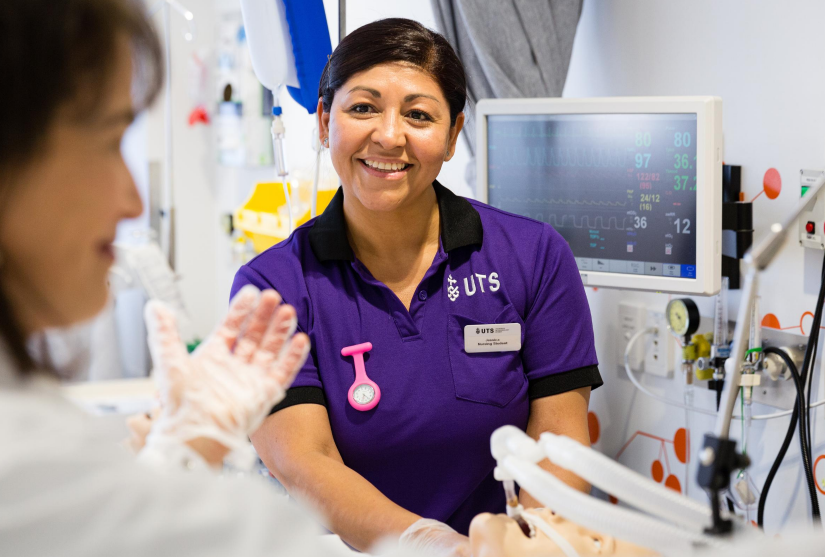Ready to go from doing to caring? It’s never too late for a nursing career. And, if you’ve previously completed an enrolled nursing qualification, you could be working as a registered nurse in as little as two years.

Meet Jessica, Bachelor of Nursing (Accelerated) student
Jessica Carrera-Peakman had always thought about nursing as a career, but as time went on, it felt like an increasingly unrealistic goal.
“Being a mature age student and just the whole idea of having to pursue a completely brand new field of study – first of all, the learning itself, going to TAFE and then going to uni and then actually undertaking the job mid-life, I just thought, how on earth am I going to achieve that?’” she says.
Instead, she worked as a paralegal and put her thoughts about a nursing career out of her mind. But when her mum was diagnosed with cancer in 2010, Jessica experienced firsthand the kindness and professionalism of the hospital nursing staff. She applied to study enrolled nursing course at TAFE soon after.
Making the switch to the caring profession
Swapping legal work for the health care sector was a bit of a shock – “it was completely different to anything I’d ever done before – there was just so much to take in,” Jessica says – but she knew from early on that she’d found her niche.
After four years working as an enrolled nurse, she was ready to expand her career opportunities. Registered nursing, with its expanded scope of practice and opportunities to specialise or move into leadership roles, was the next logical step.
I thought, well, if I want more diversity in my professional opportunities, I need to now go on to become a registered nurse.
Today, Jessica is a student in the UTS Bachelor of Nursing (Accelerated). While the standard Bachelor of Nursing is a three-year qualification, the accelerated course enables students who have completed an enrolled nursing qualification in the last five years to become a registered nurse in two.
A registered nursing degree is a step up from an enrolled nursing course. Students advance their understanding of person-centred, evidence-based care and improve their capacity to communicate and care for patients in a range of health care environments. They build skills in specialist areas of nursing, such as mental health, paediatrics and aged care, and engage with extensive clinical scenarios, including simulations, roleplays and professional placements where they can apply their skills to real-world challenges.

From enrolled nurse to registered nurse: a mid-career shift that’s paying off
For Jessica, who studies part-time, continuing her work as an enrolled nurse has been instrumental in her progress through the registered nursing degree.
“I’m working from within the industry, so it’s great – I get additional exposure, I get to go on placements, and if I need help with anything I learn at university, I’ve got my colleagues who are quite senior nurses who can help me,” she says.
“Just seeing it all in action, firsthand, is really handy. When it comes to study, I tend to remember a lot of the clinical course content because I relate it back to certain cases I’ve seen at work.”
The juggle is real – but so are the payoffs
Juggling study and work can be challenging, but for Jessica, it’s an experience that’s characterised by huge potential for personal and professional growth. Support from UTS teaching staff and from student programs like Higher Education Learning and Presentation Support (HELPS) has also helped along the way.
But the biggest reward is the opportunity to continue caring for others at pivotal moments in their lives. After all, that’s what nursing is all about.
From the moment I started nursing, I just got great satisfaction out of helping people, no matter how tough the shift was or the learning curve was.
All it took was one simple, heartfelt thank you from the patient. That was more than enough to tell me I was on the right path.

